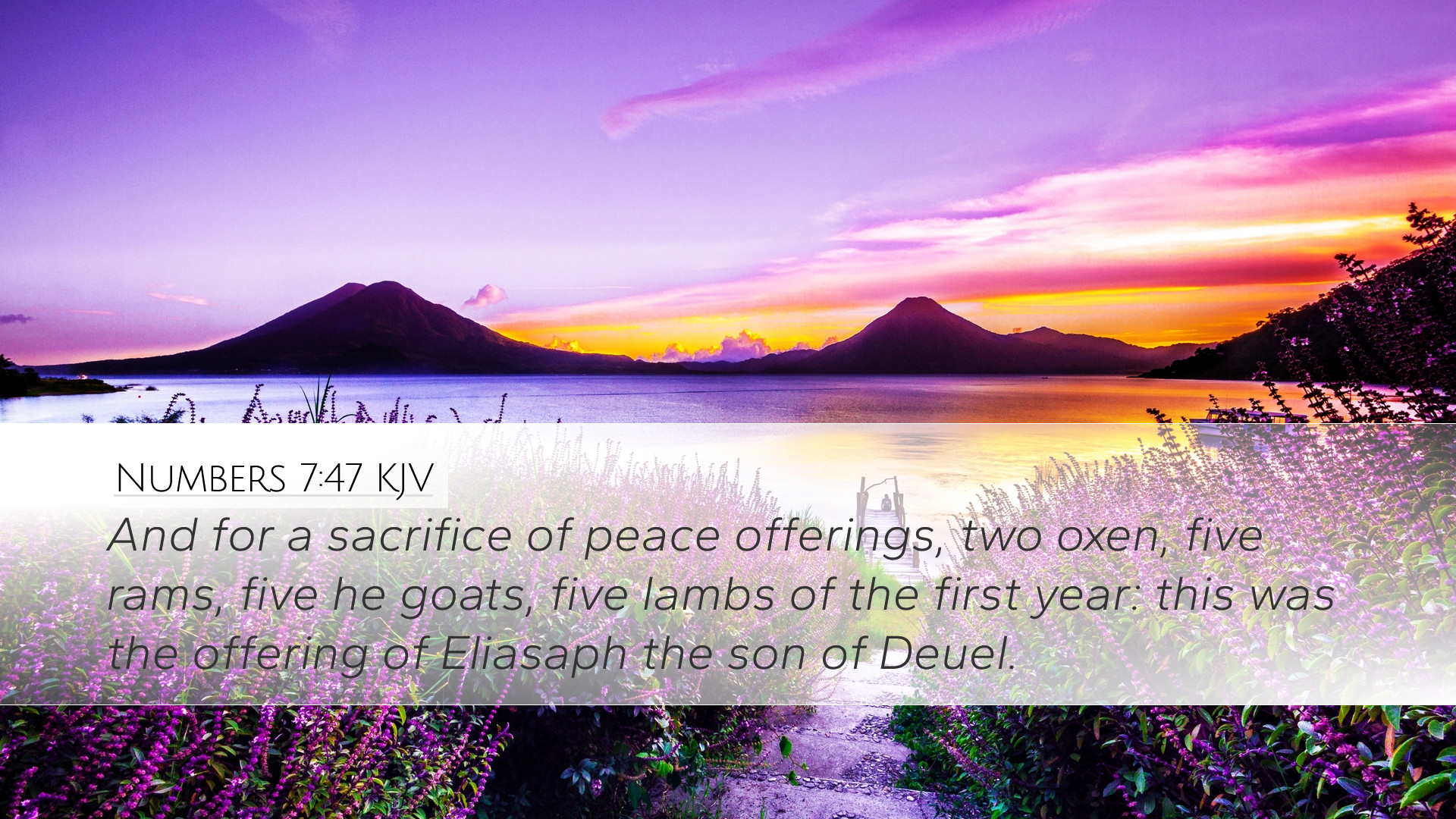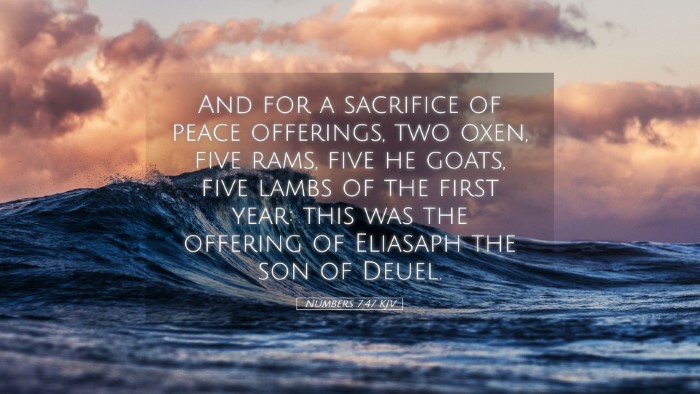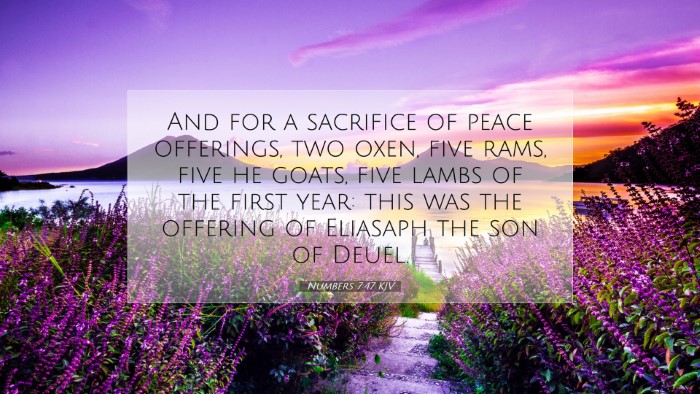Commentary on Numbers 7:47
Verse Context: Numbers 7:47 states, "And for the sacrifice of peace offerings, two oxen, five rams, five he-goats, and five lambs of the first year were offered." This verse falls within the description of the offerings made by the leaders of Israel during the dedication of the altar after its anointing by Moses.
Introduction
The book of Numbers details the journey of the Israelites through the wilderness and their preparations to enter the Promised Land. Chapter 7 is pivotal as it records the offerings made by the tribal leaders during the celebration of the inauguration of the tabernacle. In this context, verse 47 holds theological and practical significance that merits close examination.
Commentary
Historical Context
Matthew Henry emphasizes that Numbers is primarily a book of order, detailing how God organized His people for worship and service. The offerings presented by the leaders, culminating in verse 47, symbolize the collective dedication of the tribes. Each offering represents the tribes' commitment to God and their part in the covenant relationship.
Significance of Offerings
Albert Barnes highlights the significance of these peace offerings. Peace offerings were a way of expressing gratitude and fellowship with God. By presenting two oxen, five rams, five he-goats, and five lambs, the leaders were not only making a dedication but were inviting God's peace upon themselves and their tribes. Such offerings were integral to acknowledging God's providence and mercy.
The Symbolism of Numbers
Numbers often have symbolic significance within Scripture. Adam Clarke notes that the distinct animals offered in this verse can reflect certain attributes. The oxen symbolize strength and labor, the rams suggest leadership and sacrifice, goats might indicate atonement, and lambs represent innocence and purity. Each category embodies aspects of community and individual relationship with God.
Theological Implications
Covenant Relationship
The offerings in Numbers 7 serve as a powerful reminder of the covenant relationship between God and His people. Matthew Henry points out that these sacrifices demonstrate the seriousness of the covenant. God expects His people to respond to His love and grace with acts of dedication and sacrifice.
Community and Unity
Albert Barnes asserts that these offerings underscore the unity of the tribes. Each leader brought forth their gifts, symbolizing that every tribe had a role to play in God's plans. This collective effort reflects a community bound by shared faith and purpose, an essential characteristic for any congregation or church today.
Divine Acceptance
The importance of divine acceptance of offerings cannot be overstated. Adam Clarke provides insight into how the ritual of offering was meant to secure favor with God. These peace offerings not only represent thankfulness but also seek communion with the divine.
Practical Applications
Service to God
One of the key applications for modern believers stems from this passage. Just as the leaders brought their offerings to God, contemporary followers are called to dedicate their resources and lives in service to God. Matthew Henry reminds us that God desires our offerings to be genuine and stem from a grateful heart.
Community Engagement
The various offerings also encourage engagement within the church community. Albert Barnes suggests that modern congregations should likewise present their spiritual and material gifts, fostering a spirit of love and unity. Every member's contribution is vital for the overall body of Christ to function properly.
Recognizing God's Grace
In reflecting on God's generosity in providing the means for sacrifice, believers are encouraged to express gratitude. Adam Clarke suggests that our offerings today, whether time, talent, or treasure, are an acknowledgment of God's ongoing grace and provision in our lives.
Conclusion
Numbers 7:47 conveys rich theological and practical insights that continue to resonate with believers today. The verse encapsulates themes of dedication, community, and appreciation for God's grace. As pastors, scholars, and students of the Word engage with this passage, there lies an opportunity for deepening their understanding of how sacrificial offering works relationally with God and within the body of Christ.
Ultimately, this verse encourages every follower of Christ to consider how they, too, may present their lives as living sacrifices, holy and pleasing to God.


